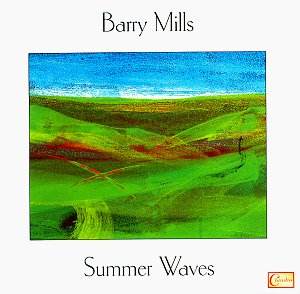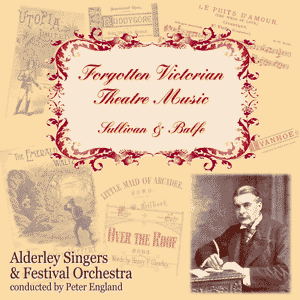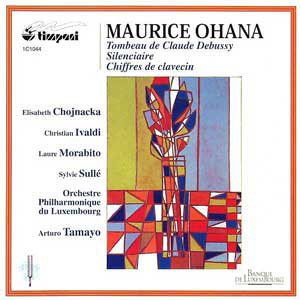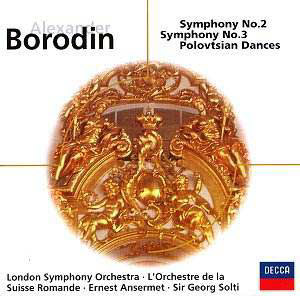 Composer: Charles Villiers Stanford
Composer: Charles Villiers Stanford
Works: The Bluebird, Beata Quorum Via, Songs of the Sea, Te Deum Laudamus in B Flat, Magnificat in B Flat, Nunc Dimittis in B Flat, Magnificat in G, Nunc Dimittis in G, Psalm 96 – O Sing unto the Lord a New Song, Psalm 150 – O Praise God in His Holiness, Agnus Dei, The Fairy Lough, A Soft Day
Performers: Choir of New College Oxford/Edward Higginbottom, Thomas Allen (baritone) with London Philharmonic Orchestra conducted by Roger Norrington, Timothy Barber (treble), Donald Sweeney (bass), Timothy Byram-Wigfield (organ), Choir of Winchester Cathedral, Bournemouth Symphony Orchestra conducted by David Hill, Choir of King’s College Chapel, Cambridge/Boris Ord, Choir of St John’s College, Cambridge/George Guest, Royal School of Church Music Massed Choirs/Lionel Dakers, Kathleen Ferrier (contralto) and Frederick Stone (piano)
Recording: Various recordings from 1952-2000
Label: DECCA
Charles Villiers Stanford, an architect of the choral tradition in England, often finds himself overshadowed by contemporaries such as Elgar and Vaughan Williams. This collection, part of the Decca British Music Collection, seeks to illuminate Stanford’s rich choral oeuvre, with an emphasis on both his sacred and secular works. From the ethereal beauty of “The Bluebird” to the stirring maritime imagery of “Songs of the Sea,” this disc offers a multifaceted glimpse into Stanford’s musical imagination, reflecting the Victorian and Edwardian fascination with nature and spirituality.
The performances across this compilation reveal a deep affinity for Stanford’s choral textures. Edward Higginbottom and the Choir of New College, Oxford, deliver a moving rendition of “Beata Quorum Via,” where the blend of voices captures the piece’s serene grace. The choir’s tonal purity and ensemble tightness evoke a transcendent quality that is characteristic of Stanford’s religious works. In contrast, Thomas Allen’s interpretation of “Songs of the Sea,” though commendable, lacks the commanding presence one might expect in the stirring “Drake’s Drum.” Allen’s nuanced approach offers a softer touch, particularly in “Captain, art thou,” where his delicate phrasing illuminates the text’s emotional undercurrents, even if it may not fully capitalize on the work’s inherent vigor.
Roger Norrington’s direction of the London Philharmonic Orchestra showcases a meticulous attention to detail, particularly in shaping “Homeward Bound.” Here, the orchestral colors swirl with a Brahmsian richness, yet one yearns for a more robust energy in “The Old Superb.” The male voices in the “Te Deum Laudamus” occasionally falter in blend, revealing some weaknesses in the overall choral sound. Conversely, the performances of the two settings of “Magnificat” and “Nunc Dimittis” from the Services in B flat and G display commendable lyricism, with treble Richard White’s sensitive delivery in the latter standing out for its clarity and emotional resonance.
The recording quality throughout is commendable, particularly in the selections featuring Kathleen Ferrier, whose “A Soft Day” and “The Fairy Lough” embody a haunting introspection. Ferrier’s interpretation, while occasionally veering towards the overly studied, captures the essence of these works with a shimmering sensitivity that is undeniably affecting. The engineering allows the listener to appreciate the textural nuances, particularly in the interplay between voice and piano in Ferrier’s performances.
Each element of this collection contributes to its overall integrity, although it does not entirely escape the pitfalls of unevenness that can plague compilations. The contrasting interpretations provide a spectrum through which to appreciate Stanford’s artistry, yet some performances, particularly Allen’s, may leave listeners desiring a more vigorous expression of the composer’s intentions.
This collection stands as a modest yet persuasive tribute to Stanford’s contributions to the choral canon. While certain interpretations may not fully resonate with the vigor and depth that Stanford’s music can evoke, the overall presentation is enhanced by thoughtful performances and high production values. The commitment to showcasing Stanford’s legacy is evident, making this disc a valuable addition to the library of anyone interested in the evolution of British choral music.



